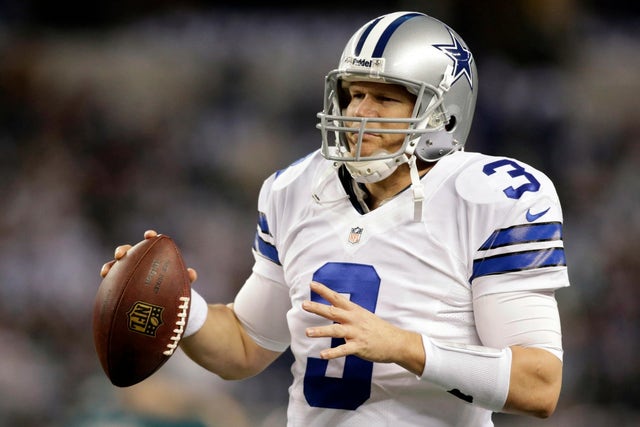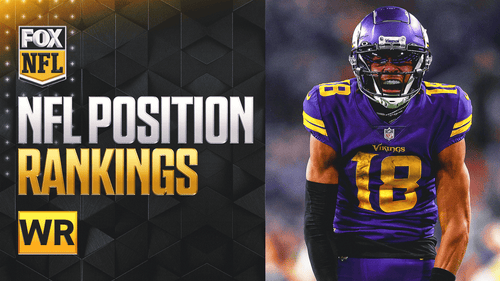
Where Are They Now: Ex-NFL QB Jon Kitna has found a new calling

BACK THEN: Jon Kitna spent 15 seasons in the NFL and made 124 career starts as a quarterback for the Seattle Seahawks, Cincinnati Bengals, Detroit Lions and Dallas Cowboys. After originally retiring following the 2011 season, Kitna returned for one game with Dallas on Christmas Eve 2013. In 2003, Kitna was named the NFL’s comeback player of the year, and for his career, he threw for 29,745 yards with 169 touchdowns and 165 interceptions.

Kitna began his 15-year career with the Seahawks.
TODAY: After his playing career ended, Kitna returned to his alma mater, Lincoln High School in Tacoma, Wash., where he was named the head coach of the football team. Then after three successful years at Lincoln, Kitna was hired as the head coach at Waxahachie High School near Dallas. In Kitna’s first year on the Waxahachie sideline, his Indians team went 6-4 but missed the playoffs after losing a coin flip in a Whataburger. Kitna’s 2016 team is 4-0 heading into Friday’s game against Red Oak.
ON HIS PASSION FOR COACHING: "First, God has given me a passion for being transformational and having an impact on youth, and I couldn’t think of a job that would be better for that than being a high school coach. Then secondly, I love the game of football. I love everything about it — the schematics, the training, the hard times, the scenarios where you can teach life lessons. I think success is determined by the amount of impact that you have, and I don’t know if there’s anything you can do that would have greater impact, in terms of what I’ve been gifted to do and have a passion for. This is my calling."

Kitna coached his son Jordan (right) before he moved on to TCU.
ON COACHING HIS SON, JORDAN, NOW A FRESHMAN WALK-ON QB AT TCU: “There isn’t a day that goes by that I don’t miss him out there. But to watch your son go from a 14-year-old eighth grader to an 18-year old graduating senior, to watch him become a man and be able to be with him every single day during that process — I wish every dad could do it because it was a huge blessing for me, personally. Our relationship is astronomically better than I could have ever imagined.
“But it’s more than that. My daughter (Jada, a senior at Waxahachie) runs our practices; she basically manages them in terms of where plays are and how plays get run. And then my two boys (Jalen, an eighth grader, and Jamison, a fifth grader) are ball boys on the sidelines on Fridays. My dad (Martin) is the equipment guy and the “get-back” coach and my brother (Matt) coaches the offensive line. My wife (Jeni) is feeding the kids, my mom (Fay) is helping feed the kids, my sister-in-law is helping feed the kids, and my adopted son (Casey Kjos) is my defensive coordinator. So this is a pretty sweet spot for me.”

Longtime NFL coach Mike Martz was one of Kitna's greatest mentors.
ON HIS GREATEST MENTORS IN THE NFL: “In terms of my offensive mind, nobody had more of an impact on me than Mike Martz during the time I got to spend with him (in Detroit). And then in terms of game management, Mike Holmgren (in Seattle) — I thought that he was the best game manager I’ve ever been around. He won the games he was supposed to win, and I tried to learn a lot from him. Then in terms of organizational development, that was Jason Garrett (in Dallas), with the details and the things he presented day-in and day-out, and his ability to get everybody to come under one common goal.”

Kitna says Jameis Winston had a head start in preparing for the NFL.
ON PLAYING VS. GROOMING ROOKIE QBS: “It really just comes down to whether the organization is in a position where that person can come in and be successful at that time, as a young quarterback with the learning curve they have to go under. Obviously it depends on where they came from in college, too. Jameis Winston has a chance to be successful because they ran a pro-style system (at Florida State) and Carson Palmer had a chance to be successful (when he took over during his second year in Cincinnati) because he ran a pro-style system in college. Andrew Luck, the same kind of thing.
“But then there are some of these kids who are coming out of college who haven’t run those systems, and it can be difficult on them, and then the question becomes whether the infrastructure is in place for them to ever become successful. What does that look like? Well, you’ve got to be able to play great defense, you’ve got to be able to run the football. You don’t want to be behind and basically leave him out there among the sharks, so to speak, and I think that’s the biggest thing.”
You can follow Sam Gardner on Twitter or email him at samgardnerfox@gmail.com.










